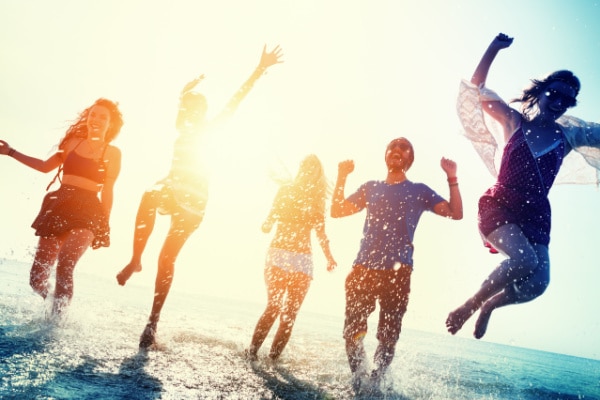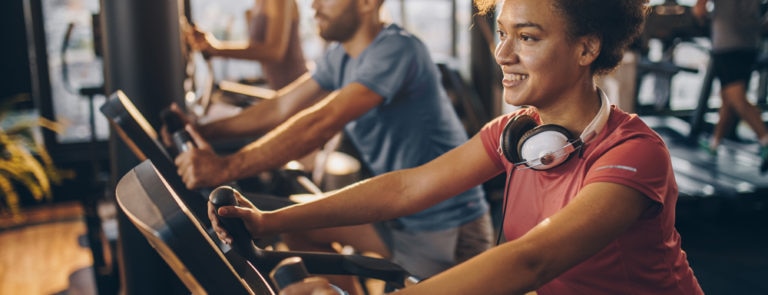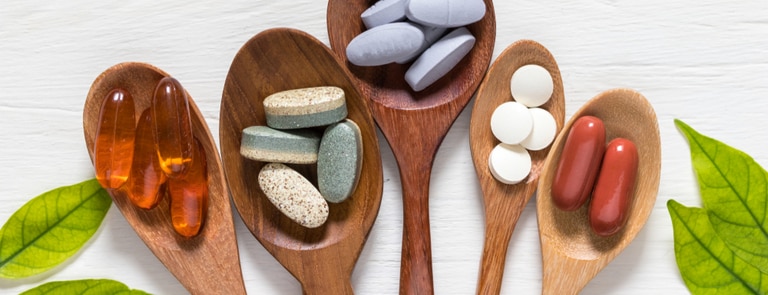10% off £30 OR 15% off £40
Do I have heat stroke or heat exhaustion?

Summary
1What is heat exhaustion?
Heat exhaustion happens when the body gets too hot and dehydrated. You can no longer sweat to cool yourself down and your body temperature rises.
2What is heatstroke?
Also called “sun stroke”, heatstroke also happens when the body gets dangerously hot. However, it’s potentially life-threatening and is an emergency.
3What to do
You must take steps to prevent it where you can, mainly by staying cool, drinking lots of fluids, and not doing extreme exercise when it’s hot.
Heat exhaustion vs heatstroke: what’s the difference?
It’s easy to do: a few drinks in the sun, or a beach trip that’s gone on a little longer than planned. Still, you can get ill or even risk your life if you overheat.
Heatstroke and heat exhaustion break the body’s natural “thermostat” and mean you get dangerously hotter and hotter.
But what’s the difference between them? And when is it an emergency?
What is heat exhaustion?
- a high temperature
- tiredness and weakness
- dizziness
- feeling or being sick
- becoming very thirsty
- fast breathing or heartbeat
- muscle cramps
- clammy skin, paleness (on lighter skin tones), or excessive sweating
What is heatstroke?
What is heatstroke?
Also called “sun stroke”, heatstroke also happens when the body gets dangerously hot. However, it’s potentially life-threatening and is an emergency. ¹, ²
You may see symptoms similar to heat exhaustion at first, like sickness, dizziness, and extreme high temperature.
Call 999 if you or someone else have not recovered after 30 minutes in a cool place, being cooled and drinking fluids.


Or if you or someone else are experiencing: skin that is very hot but not sweating; confusion, irritability, or delusion; a seizure or fit; or loss of consciousness.
Preventing heat exhaustion
You can help prevent heat exhaustion by staying cool and hydrated, and doing the following:
-
Drinking lots of cold drinks
-
Avoiding the sun between 11am and 3pm
-
Avoiding excess alcohol: this dehydrates you, and if you’re drinking a lot you may not associate your symptoms with heat exhaustion until it’s too late
-
Avoiding extreme exercise
-
Keeping your home as cool as possible by closing curtains, closing windows if it’s hotter outside than inside, and turning off electrical equipment that gets warm
People who find it harder to regulate their body temperature (for example, very old or young people or those with chronic illnesses) can get heat exhaustion just by being in hot weather, even if it’s not for very long or they’re not active.
You’ll need to take extra care to keep yourself or another at-risk person hydrated and out of the heat wherever possible.
Preventing heatstroke
Preventing heatstroke
You can help to prevent heatstroke in all the same ways as heat exhaustion.
If you think someone already has heat exhaustion, it’s vital to act to help stop it from turning into heatstroke.
You're also more at risk from heatstroke if you’ve had it before. ²


Heat exhaustion: what to do
- Move them to a cool place.
- Remove all unnecessary clothing, like jumpers or shoes and socks.
- Give them cool water or a sports drink.
- Cool their skin using cold water, by fanning them, or by placing ice packs wrapped in cloth on their body.
- The neck and armpits are good places to help the body cool down quickly.
Heatstroke: what to do
Stay with them until help arrives and try to cool them down using the steps above. Do not try to make them drink anything if they are unconscious. ⁴
If they are unconscious or losing consciousness, put them in the recovery position until help arrives.













